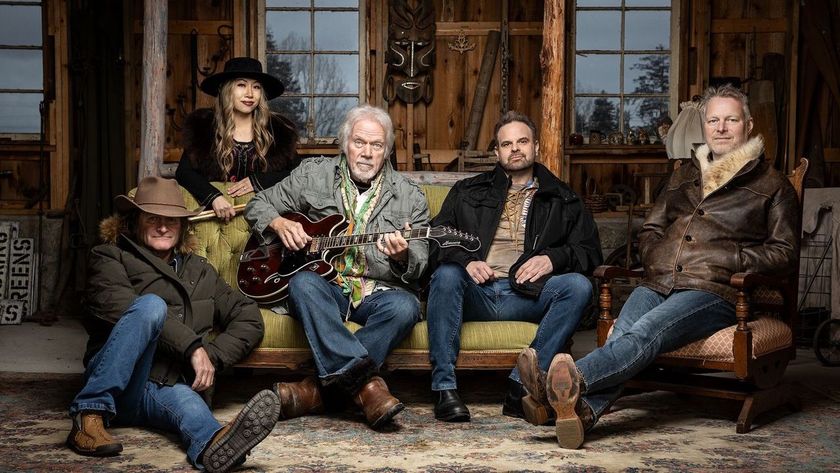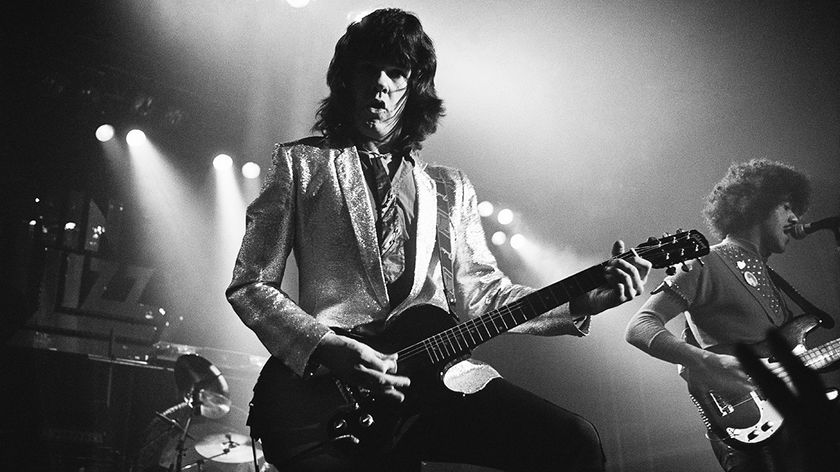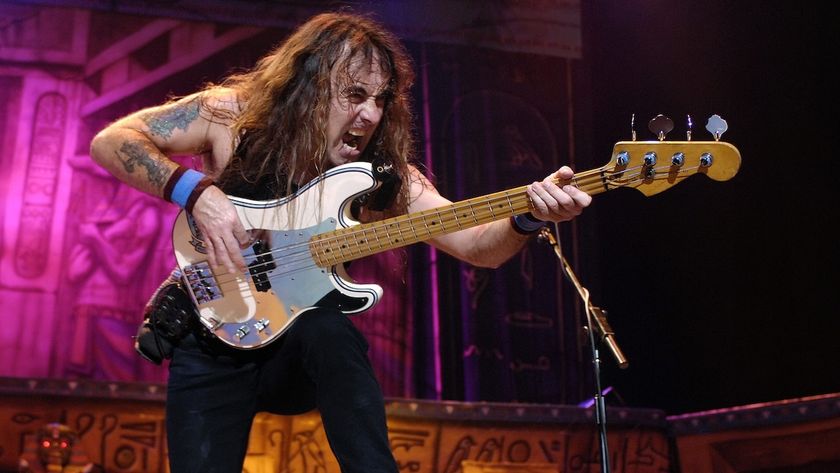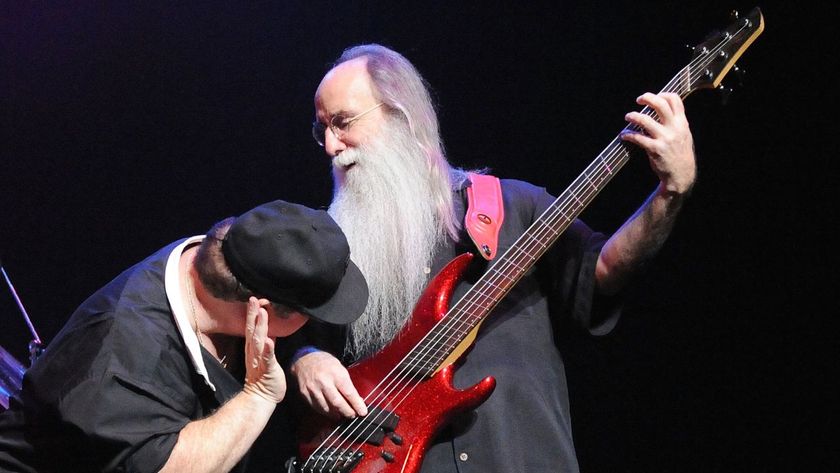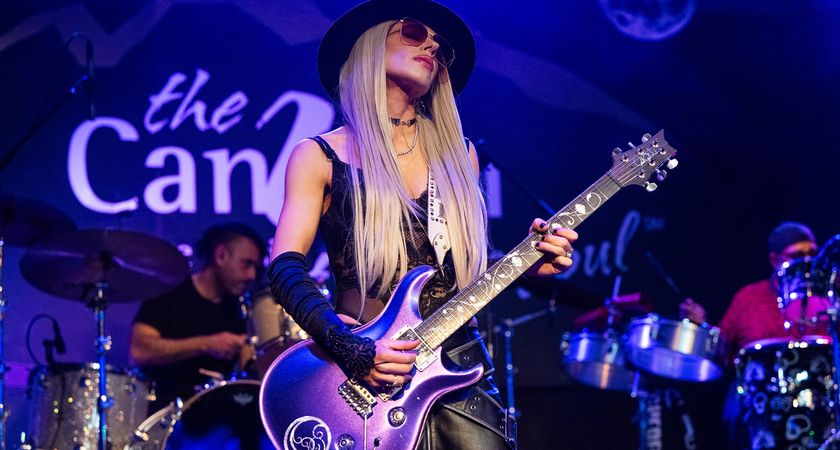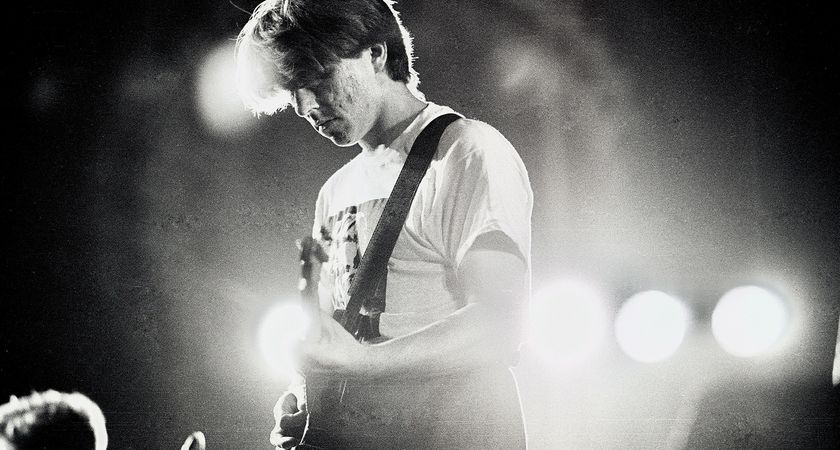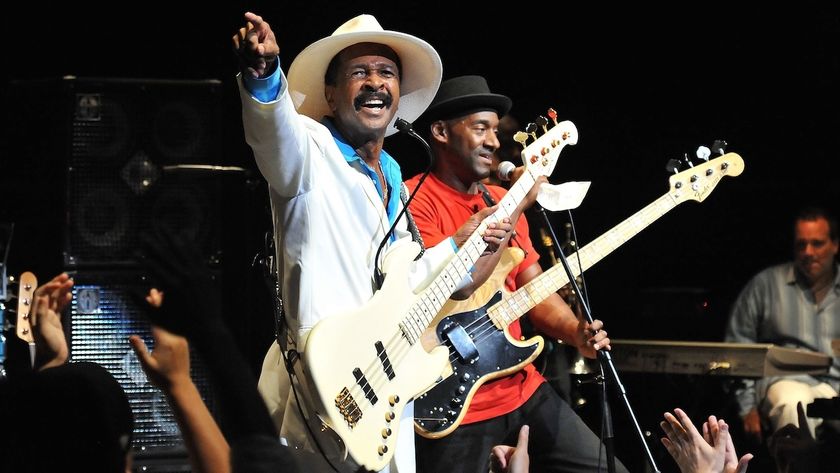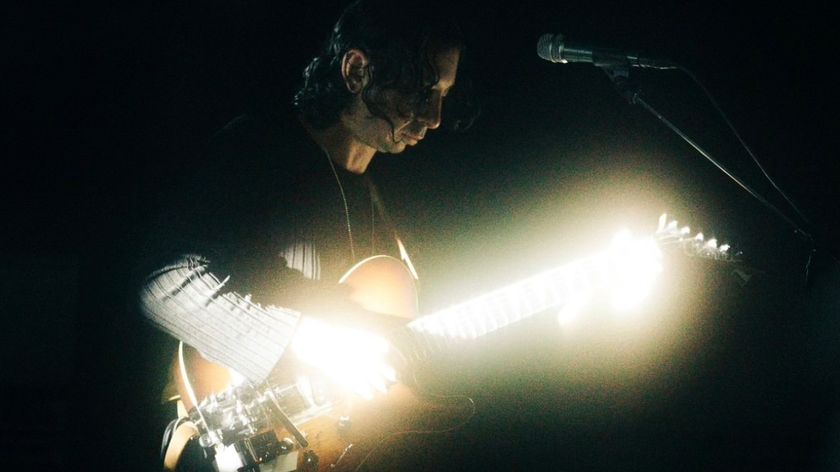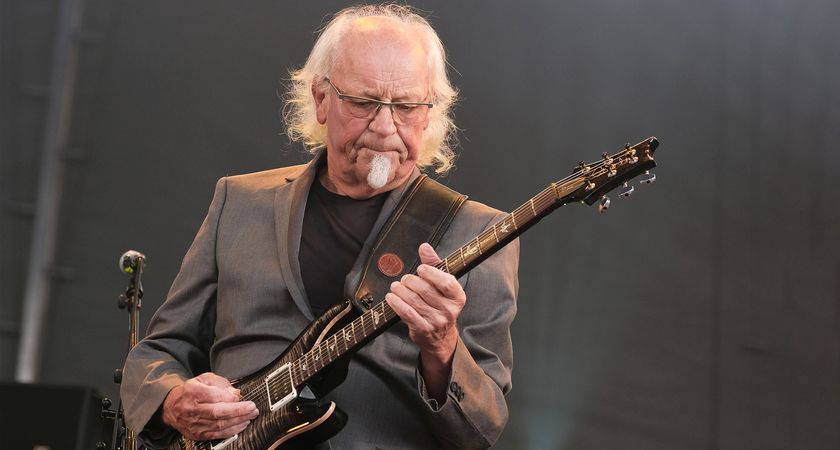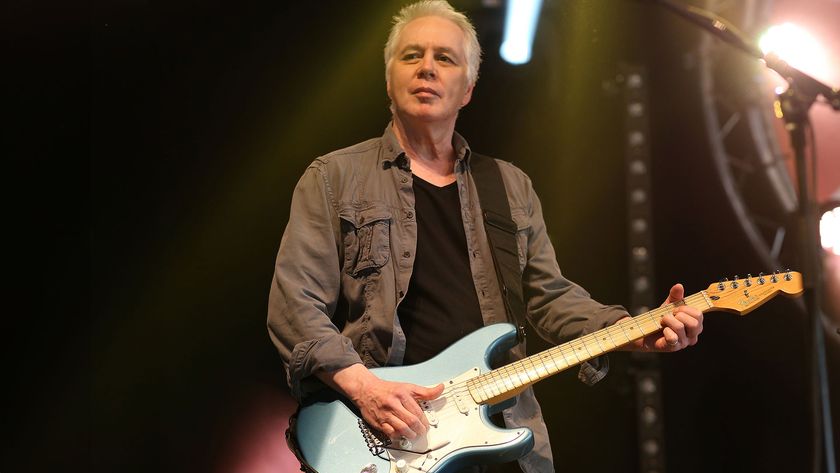Iggy Pop and James Williamson Discuss 'Ready to Die,' the First Iggy and The Stooges Album in 40 Years

This is an excerpt from the August 2013 issue of Guitar World magazine. For the rest of this story, plus a tribute to Slayer's Jeff Hanneman and features on Buzz Osbourne of the Melvins, Joe Bonamassa, Steve Morse of Deep Purple, Eric Clapton's 2013 Crossroads Guitar Festival, the 25 Best Guitar & Music Apps and more, check out the August 2013 issue at the Guitar World Online Store.
Rage and despair are the ruling passions on Ready to Die, the new album by Iggy and the Stooges. Well, that and big boobs. Only James Newell Osterberg Jr., a.k.a. Iggy Pop, could follow up the disc’s death-haunted title track with an homage to humongous hooters, the aptly named “DD’s.”
“I guess I’ll accept that distinction,” Iggy says with a laugh. “It’s funny that that song gets a lot of attention. If it was as bad as some people say it is, it wouldn’t be getting noticed. But it’s getting noticed as much as its subject gets noticed.”
So the question becomes, does the 66-year-old godfather of punk spend more time these days thinking about death or boobs?
“Boobs,” he answers without hesitation. “It’s a more fun subject. Sometimes when I find myself thinking about death I’ll say to myself, ‘Jim, think about sex. You’ll feel better.’ ”
But apart from this track, Ready to Die’s tune stack skews more toward the dark side. With song titles like “Gun,” “Job,” “Burn,” “Sex and Money,” “Dirty Deal” and “Unfriendly World,” the disc is a rabid, guitar-charged howl ripped from today’s headlines—a soundtrack for the meltdown of Western civilization, spiked with the foreboding shadow of mortality and the napalm stench of a world that’s more brutal, ugly and money- and power-hungry than ever before.
“Well…all that stuff does pop up,” Iggy defers. “To be honest with you, it’s not like I walk around the street or my garden or the beach in rage and despair. But when I listen to James Williamson’s guitar and his music, those are the kind of lyrics that seem to suit it perfectly. What he does is intense.”
Get The Pick Newsletter
All the latest guitar news, interviews, lessons, reviews, deals and more, direct to your inbox!
Williamson and Pop’s first studio collaboration was 1973’s seminal Raw Power album. It was a defining moment in rock history, an album that would go on to launch a thousand punk and alternative-rock bands and influence the development of heavy metal in the early Seventies. Sex Pistols guitarist Steve Jones and consummate alternative guitar stylist Johnny Marr are among Williamson’s greatest acolytes.
The Stooges split up amid scenes of drug-induced dysfunction a year after Raw Power’s release, their not so elegantly wasted final show documented on the 1974 live album Metallic K.O. Williamson went on to produce a few of Iggy’s solo recordings in the late Seventies but dropped out of music entirely in 1980. He attended California Polytechnic University and ended up working for Sony as vice president of technology standards. But now he’s back in black, and Ready to Die is the first studio album since Raw Power to bear the Iggy and the Stooges’ band name. Williamson produced Ready to Die and laid down the disc’s snarling viper’s nest of toxic rock guitar tracks.
“It’s impossible for this new album not to be compared to Raw Power,” Williamson says. “That’s the benchmark that everybody’s looking for. And we didn’t necessarily want to make another Raw Power. We already did that. But the goal I had was to make us sound like us. That’s what I think you’re hearing. It’s just hard-charging guitars, big drums and vocals.”
“Raw Power was my first album, and I didn’t really know what I was doing,” Williamson admits. “We recorded the basic tracks live, and there was a lot of bass bleeding into the drums. When all was said and done, we made the engineer do a lot of things he didn’t want to do. We were a bunch of bull-headed young guys.”
In contrast, Ready to Die is the work of mature rock and rollers on top of their game. Their craft, individually and collectively, is finely honed and supremely dialed in. But they seem to have lost very little of their youthful sound and fury. It never takes much to bring out Iggy’s inner beast. And after three decades cooped up in the corporate world, Williamson comes on like a wild panther sprung from his cage. He is one of those rare rock guitarists who combine the soul of a rock and roll animal with a scientist’s obsessive command of the physics of guitar tonality. Or in Iggy’s words, “He’s an ace vice president of nerd-ology now.”
Bringing Williamson back to rock was one of Iggy’s many great contributions to the music. The chain of events was set in motion in 2003 when Iggy reunited original Stooges Ron and Scott Asheton (guitar and drums, respectively) with ex-Minutemen/Firehose bassist Mike Watt, who took over from original Stooge Dave Alexander. But when Ron died in 2009, Iggy started talking to James Williamson again. It was their first real conversations since parting acrimoniously during the making of Iggy’s 1980 solo album, Soldier.
“I hated Williamson and Williamson hated me,” Iggy says bluntly of the situation in back in Eighties. “Everybody just hated being there in the studio. So I finished off the record by myself, with just a rhythm section.”
Photo: Jason Goodrich
For the rest of this story, plus our tribute to Slayer's Jeff Hanneman and features on Buzz Osbourne of the Melvins, Joe Bonamassa, Steve Morse of Deep Purple, Eric Clapton's 2013 Crossroads Guitar Festival, the 25 Best Guitar & Music Apps and more, check out the August 2013 issue at the Guitar World Online Store.
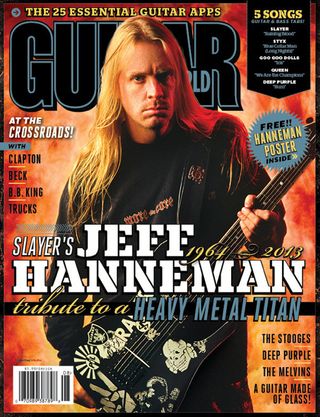
In a career that spans five decades, Alan di Perna has written for pretty much every magazine in the world with the word “guitar” in its title, as well as other prestigious outlets such as Rolling Stone, Billboard, Creem, Player, Classic Rock, Musician, Future Music, Keyboard, grammy.com and reverb.com. He is author of Guitar Masters: Intimate Portraits, Green Day: The Ultimate Unauthorized History and co-author of Play It Loud: An Epic History of the Sound Style and Revolution of the Electric Guitar. The latter became the inspiration for the Metropolitan Museum of Art/Rock and Roll Hall of Fame exhibition “Play It Loud: Instruments of Rock and Roll.” As a professional guitarist/keyboardist/multi-instrumentalist, Alan has worked with recording artists Brianna Lea Pruett, Fawn Wood, Brenda McMorrow, Sat Kartar and Shox Lumania.


